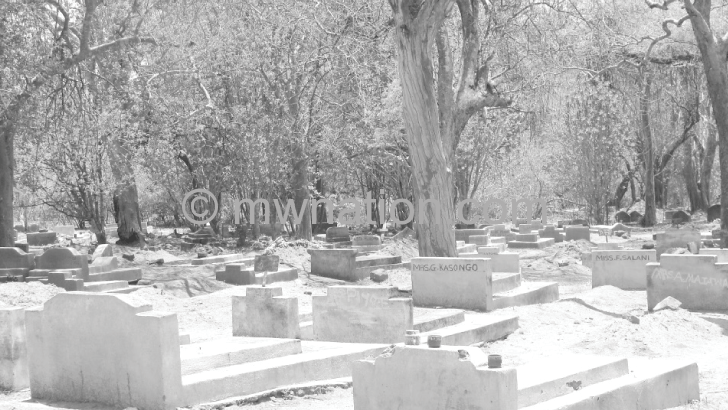When funeral economics meet culture
If the tough economic times that the country is facing at the moment were to signal the end of days of long distance travel to bury the dead, then it has failed completely to break the resolve of Malawians who mostly find it befitting to transport dead bodies for burial to the home of the deceased.
In a country where traditions and customs are treated with utmost care, some societies take failure to bring back dead bodies from wherever the person died as a taboo.

But if you ask Kingwood Sumani, a resident of Chitekesa Trading Centre in Phalombe, it’s time Malawians think of the costs involved transporting the dead long distances for burial.
“Much as it is culturally right to bury people where they came from, it should be borne in mind that times have changed. Life is expensive and you should think of transporting a dead body from here in Phalombe for example to Mchinji. That is why some people especially in towns and cities are opting for burying the dead where they were living. It’s easier and less complicated,” he said.
The question of burying the dead in the land of their ancestors is a bloated subject which also factors in funerals that take place in the diaspora forcing relatives to dig deep into their pockets to foot transportation costs of the body and relatives.
The dynamics of the issue go beyond culture and economics but also how society is weaved according to Edward Kapichira of Mangochi.
“Sometimes it does not make sense to hear that relatives are taking the body to the village. Notwithstanding the fact the person had lived in the area for a long time and was a naturalized citizen. How do you expect someone whose friends and associates are denied the right to give him or her a proper burial, only to be give the same to people in the village some of who did not even know the dead person in their lifetime?” queries Kapichira.
In the mix have been issues of city councils such as that of Blantyre which some three years ago conceded that cemeteries around the city were becoming fast filled up that there would be no space left in 10 years, if alternatives were not found.
But while some are advocating for a paradigm shift when it comes to funeral arrangements which includes burial, chiefs who are the custodians of culture are keeping on the traditional view of things.
Traditional Authority Chikumbu of Mulanje said as chiefs they still believe they have a right to ask their subjects living elsewhere to bring their dead to the village in respect of culture and traditional customs.
“It is not asking too much if we insist that villagers whose relatives die away from the village should bring their dead for a descent burial in the village. It is the way things should be. In fact, if it was not for the financial difficulties that people face on a daily basis, we would have wished all to buried in the village. That gives respect and enrichment to the community,” he said.
In a globalized economy, many times Malawians whose relatives are living abroad find themselves in precarious situations when they have to repatriate dead bodies of their relatives from abroad.
Our investigations show that transporting a dead person from abroad is expensive that the majority of Malawians cannot afford.
Anthony Chimbilima Gondwe, who stays in Mzuzu, and whose brother died Ireland in 2013 explained of the hurdles that are associated with repatriation of dead bodies from Western Europe.
“It’s a rigorous process as it involves the coroner who issues an embalming certificate, the processing of the deceased’s travel documents, paying costs of undertakers, hearse, mortuary and X-ray tests before arrangements for transportation of the body is arranged which is classified as cargo,” said Gondwe.
But as voices questioning the rationale of bringing dead relatives home for burial, renowned cultural commentator Dyson Gonthi said the custom is not limited to Malawi and should not be perceived in a negative sense.
“We can start looking at this from a historical perspective that our ancestors before colonialists came to Malawi, were living in close societies. So when death occurred they believed that the spirit was still hovering around the village and the graveyard was its habitation hence the temples that were built to sacrifice to spirits.
Now the same belief applies today such that when people in the village call for their dead to be buried in the village they are just following tradition. If anything even biblically we read of prophets like Abraham being carried home for burial after his death. Check around in other societies who take ashes of their dead to their respective countries,” he said.
Nevertheless Gonthi conceded that economic dynamics have changed and, therefore, there was need to make necessary adjustments.
“If the money is available there is no problem, people can take their dead to their respective home villages,’’ he said. n





